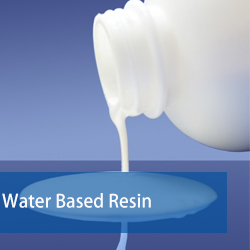Your mobile device needs to be recharged and has become a very important necessities when you go out for activities. However, this does not mean that you cannot give your mobile device when you are in the car. If you are looking for a new car 12V charger, you may be interested in the design of this new flux capacitor USB charger designed specifically for your car's 12 volt outlet. Silicone Resins, Resin Material, 9003-01-4 Water Based Resin, Coating With Resin,Water Based Epoxy Guangzhou Quanxu Technology Co Ltd , https://www.anticorrosionpigment.com
The flux capacitor charger provides a closable effect when you need to save your helium element. The Flux Capacitor USB Car Charger is now available on the ThinkGeek website for $24.99 and offers two USB charging ports in the form of a 1A and a 2.1A. Water-based resin refers to a type of adhesive or sealant that is made from a combination of water and a polymer base. These resins are commonly used in various industries due to their eco-friendliness, ease of application, and cost-effectiveness.
Here are some key points about water-based resins:
1. Environmental Benefits: Water-based resins have lower volatile organic compound (VOC) emissions compared to solvent-based resins, making them more environmentally friendly. This makes them a popular choice for applications where reducing the environmental impact is a priority.
2. Versatility: They can be used in a wide range of applications including woodworking, furniture making, construction, automotive, and even in the production of composite materials. They can also be formulated to provide different properties such as flexibility, strength, or resistance to heat, chemicals, and UV light.
3. Ease of Use: Water-based resins are generally easier to apply than solvent-based ones because they do not require special equipment or protective clothing. They can often be cleaned up with water rather than harsh solvents.
4. Curing Process: These resins cure through a process called cross-linking, which involves chemical reactions between the components to form a solid material. The curing time can vary depending on factors like temperature, humidity, and the specific formulation of the resin.
5. Disadvantages: While water-based resins offer many benefits, they may not provide the same level of durability and resistance as solvent-based resins. They might also have slower drying times and may not perform well under extreme temperatures or in high-moisture environments.
6. Types: There are various types of water-based resins including acrylic, polyurethane, epoxy, and alkyd resins, each with its own set of properties and uses.
7. Safety: They are typically less hazardous than solvent-based resins, but users should still follow proper safety guidelines when handling them, especially during the mixing and application phases.
8. Application: Water-based resins can be applied using a variety of methods including spraying, brushing, or rolling, depending on the specific application and the desired finish.
When choosing a water-based resin, it's important to consider the specific requirements of your project, including the intended use, environmental considerations, and any necessary performance characteristics.
